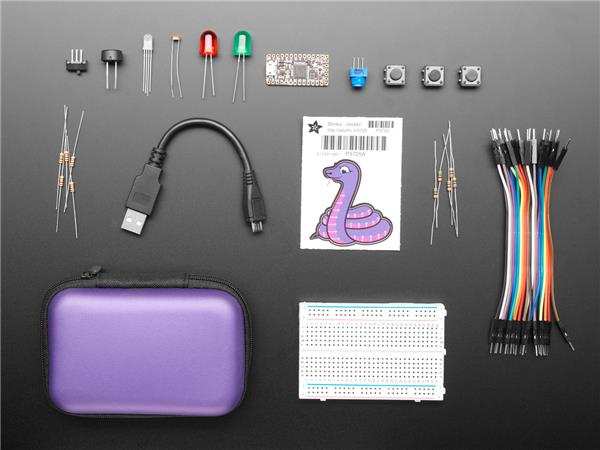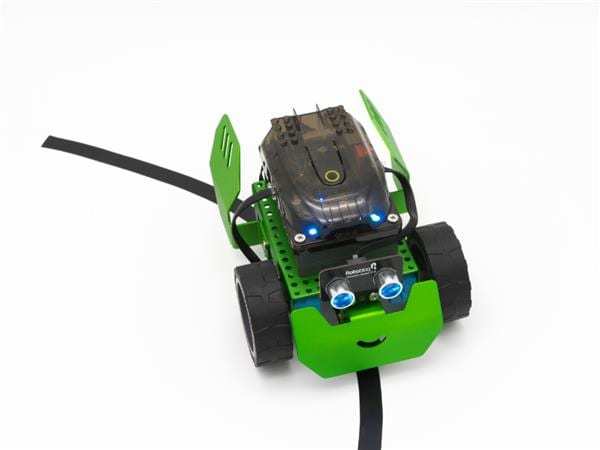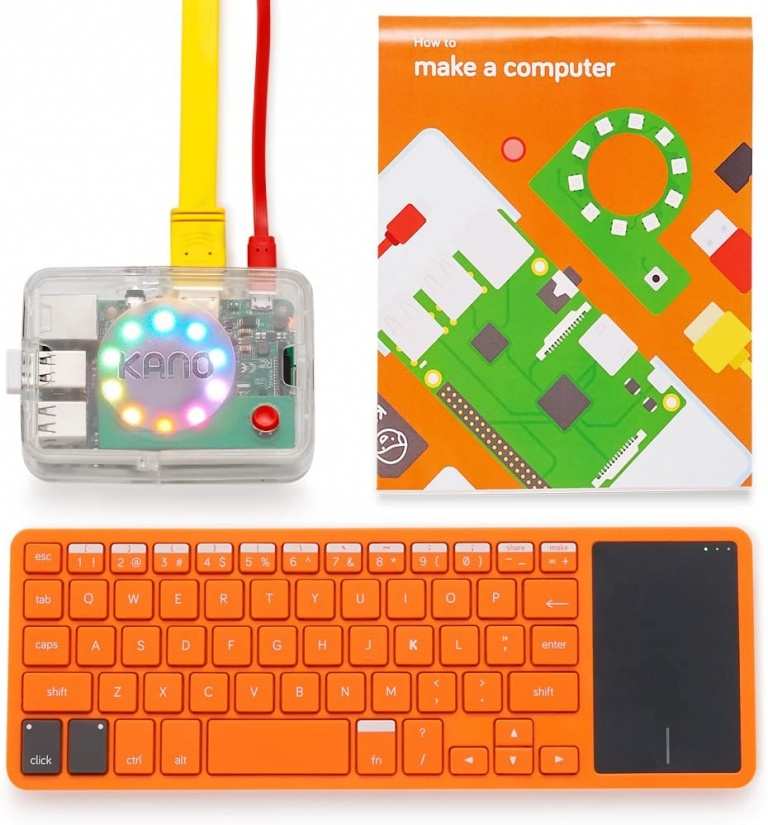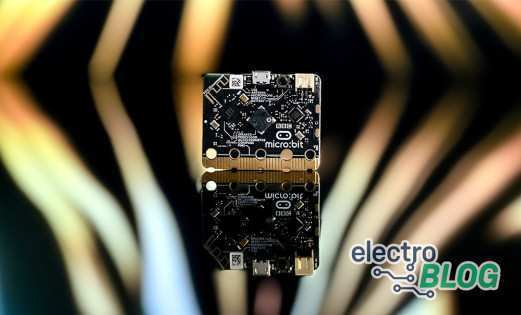Best STEM Learning Kits for the Classroom
Science, technology, engineering, and mathematics (STEM) learning is a hot topic. And it's not limited to at-home learning. In fact, STEM has permeated the classroom. Check out the best STEM learning kits for the classroom!
Best STEM Learning Kit for the Classroom - Seeed Studio Grove Beginner Kit for Arduino
The Seeed Studio Grove Beginner Kit for Arduino is a good option for use in schools. The Grove Beginner Kit includes 10 different modules as well as sensors. You'll get an air pressure sensor, 3-axis accelerometer, sound sensor, light sensor, rotary potentiometer, LED, buzzer, and OLED display. These accessories are pre-connected but may also be broken out for use with cables.
Since it's an Arduino-compatible microcontroller, the Grove Beginner Kit is extremely versatile. In my review, I liked the bundled accessories, sample projects, and prototyping capabilities. Use of the Grove system means there's no tricky soldering or wiring - merely simple cable connecters. Not only is it a great kit for the classroom, but it's a solid option for adults and kids alike.
Grove Beginner Kit features:
- Simple to use
- Arduino UNO microcontroller
- 10 x connectors (air pressure sensor, 3-axis accelerometer, sound sensor, light sensor, rotary potentiometer, LED, buzzer, and OLED display)
- 12 x starter tutorials with sample code
- Affordable
- Excellent for prototyping
- Utilizes Seeed Studio Grove system connectors
Top STEM Kit to Teach Kids Coding - Adafruit CircuitPython Starter Kit with ItsyBitsy M4

You're never too young to learn coding. The CircuitPython starter kit with ItsyBitsy M4 is a neat choice for teaching kids programming even at an early age. It comes with an ItsyBitsy that's powered by an ATSAMD51 Cortex M4 processor clocked at 120 MHz. There are plenty of inputs/outputs (I/O), from GPIO pins to analog inputs or outputs. You'll find 192KB of RAM and 512KB of flash for programming. Plus, you can learn soldering. With CircuitPython programming language compatibility, the ItsyBitsy M4 is a neat beginner-friendly programming package.
ItsyBitsy M4 Adafruit CircuitPython starter kit features:
- Includes ItsyBitsy M4 MCU, case, cables, pins, LEDs, and more
- Woks with the CircuitPython programming language
- Teaches coding at young age
- Lots of accessories including a breadboard and LEDs
- Teaches basic soldering
Best Educational Robot - Q-Scout Robot Building Kit Line Follower

Robotics can be awesome for the classroom. And the Q-Scout is a nifty robot that can teach a lot about electronics while being fun. It's Arduino-compatible for learning about Arduino code. Plus, there are LEGO bits onboard so that the Q-scout may be outfitted with different LEGO blocks. As such, it's a powerful robotic device that can teach loads about electronics while being a blast to decorate.
The build process is easy and takes a mere 20-minutes. With Scratch 3.0 coding compatibility, the Q-scout doesn't only let you play around with physical blocks. Instead, you can get started with fundamental building blocks of coding and programming. With its line-following capabilities, this is a fantastic robot to play around with once it's completely built, and there's infinite playtime adding LEGO blocks and figures after the fact.
Q-scout robot features:
- LEGO compatible
- Arduino microcontroller on board
- Uses Scratch coding environment to teach programming
- Line-following robot
Most Fun Stem Kit for the Classroom - Pimoroni Picade
Although gaming isn't necessarily thought of as an educational activity, video games in the classroom have been around since the early days of computing. Many grew up playing The Oregon Trail, Carmen San Diego, and other edutainment games. The Pimoroni Picade is a cool device that can get kids interested in electronics tinkering. Powered by a Raspberry Pi, it's a good opportunity to learn about maker hardware and software. Children can learn how to connect different wires and buttons, install software, and then the completed project can play retro games.
Pimoroni's Pidcade comes in several different variations including an 8-inch tabletop arcade cabinet, 10-inch tabletop arcade cabinet, and a plug-and-play Picade console that is screenless. In our review, we appreciated the retro vibe of the Picade and its Picade Console sibling.
Pimoroni Picade features:
- Comes in two variants: A tabletop arcade cabinet with an 8-inch or 10-inch screen or a plug-and-play console
- Fun - build a DIY retro gaming machine
- Learn about maker hardware and software
Most Versatile STEM Kit for the Classroom - Kano Kit

The Kano Kit is a utilitarian little device. It lets you build your own computer using a Raspberry Pi with step-by-step instructions. There are loads of accessories including LEDs, a case, wireless keyboard, and everything you need to get started. Boasting over 100 coding challenges and more than 100 apps, the Kano Kit is a great Raspberry Pi starter bundle. It lets kids play games like Minecraft, create art, make music, blink LEDs, and learn programming fundamentals. Packed with learning opportunities, the Kano Kit is a STEM learning kit that can scale with children and last for years.
Kano Kit features:
- Raspberry Pi-powered
- Includes lots of accessories like LEDs, an HDMI cable, Raspberry Pi board, keyboard, programming lessons, step-by-step instructions, and more
- Lots of possibilities - make art, creat music, play games like Minecraft
- Teaches programming basics
Best STEM Learning Kits for the Classroom - Final Thoughts
Overall, there are plenty of different STEM learning kits for education. The Kano Kit is a good overall option with infinite possibilities. Q-Scout's robot lets you make a robot, learn programming fundamentals, and play with LEGOs. The Pimoroni Picade brings retro gaming to the classroom with the added bonus of teaching about maker hardware and software. Adafruit's ItsyBitsy M4 is a cool coding kit that even teaches simple soldering. Seeed Studio's Grove Beginner Kit for Arduino is an excellent beginner-friendly Arduino kit that comes with all the accessories you need and a slew of sample projects.
Your turn: What STEM learning kits do you have in your classroom?
















































Leave your feedback...